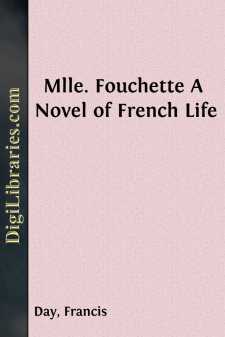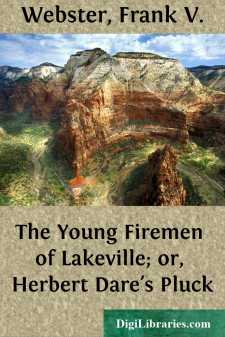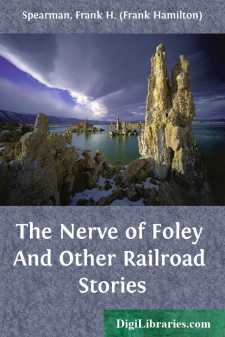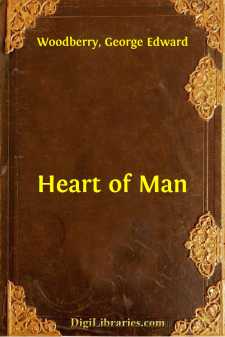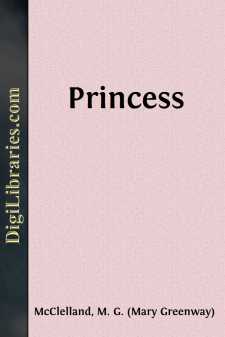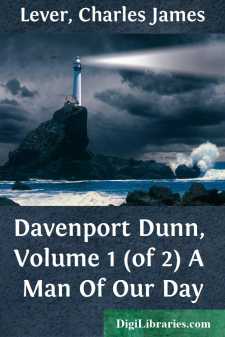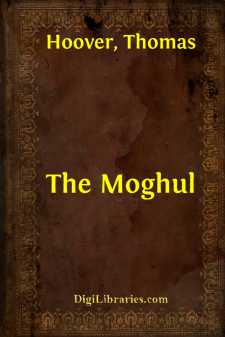Fiction
- Action & Adventure 180
- Biographical 15
- Christian 59
- Classics
- Coming of Age 5
- Contemporary Women 3
- Erotica 8
- Espionage/Intrigue 12
- Fairy Tales, Folklore & Mythology 236
- Family Life 169
- Fantasy 117
- Gay 1
- General 596
- Ghost 32
- Historical 808
- Horror 43
- Humorous 160
- Jewish 25
- Legal 4
- Medical 22
- Mystery & Detective 315
- Political 49
- Psychological 41
- Religious 64
- Romance 159
- Sagas 11
- Science Fiction 730
- Sea Stories 113
- Short Stories (single author) 537
- Sports 10
- Suspense 1
- Technological 8
- Thrillers 2
- Urban Life 31
- Visionary & Metaphysical 1
- War & Military 173
- Westerns 199
Classics Books
Sort by:
by:
Francis Day
CHAPTER I "Get along, you little beast!" Madame Podvin accompanied her admonition with a vigorous blow from her heavy hand. "Out, I say!" Thump. "You lazy caniche!" Thump. "You get no breakfast here this morning!" Thump. "Out with you!" Thump. In the mean time the unhappy object of these objurgations and blows had been rapidly propelled towards the open door, and...
more...
by:
Frank V. Webster
CHAPTER I A MIDNIGHT ALARM "Fire! Fire! Turn out, everybody! Fire! Fire!" This cry, coming like a clarion call, at midnight, awoke the inhabitants of the peaceful little New England village of Lakeville. "Fire! Fire!" Heads were thrust out of hastily-raised windows. Men and women looked up and down the street, and then glanced around to detect the reddening in the sky that would...
more...
There had been rumors all winter that the engineers were going to strike. Certainly we of the operating department had warning enough. Yet in the railroad life there is always friction in some quarter; the railroad man sleeps like the soldier, with an ear alert—but just the same he sleeps, for with waking comes duty. Our engineers were good fellows. If they had faults, they were American...
more...
TAORMINA I What should there be in the glimmering lights of a poor fishing-village to fascinate me? Far below, a mile perhaps, I behold them in the darkness and the storm like some phosphorescence of the beach; I see the pale tossing of the surf beside them; I hear the continuous roar borne up and softened about these heights; and this is night at Taormina. There is a weirdness in the scene—the...
more...
Ef you don't knowDoc SifersI'll jes argy, here and now,You've bin a mighty little while about here, anyhow!'Cause Doc he's rid these roads and woods—erswum'em, now and then—And practised in this neighberhood sence hain't no tellin' when! IIIn radius o' fifteen mile'd, all p'ints o' compass round,No man er woman, chick er child, er team, on...
more...
by:
Anonymous
CHAPTER I. DEFINITION.—EVERY PERSON HAS SOME SPECIAL VOCATION. Q. What is a vocation? A. A call from God to some state of life. Q. Which are the principal states of life? A. Matrimony, virginity, the religious state, and the priesthood. Q. Has every person a vocation? A. Yes; God gives a special vocation to each person. Q. How is this doctrine proved? A. St. Paul says: "Every one hath his proper...
more...
CHAPTER I. When the idea of a removal to Virginia was first mooted in the family of General Percival Smith, ex-Brigadier in the United States service, it was received with consternation and a perfect storm of disapproval. The young ladies, Norma and Blanche, rose as one woman—loud in denunciation, vehement in protest—fell upon the scheme, and verbally sought to annihilate it. The country! A farm!!...
more...
MATTHEW ARNOLD THE FUNCTION OF CRITICISM The critical power is of lower rank than the creative. True; but in assenting to this proposition, one or two things are to be kept in mind. It is undeniable that the exercise of a creative power, that a free creative activity, is the true function of man; it is proved to be so by man’s finding in it his true happiness. But it is undeniable, also, that men may...
more...
CHAPTER I. HYDROPATHIC ACQUAINTANCES. We are at Como, on the lake—that spot so beloved of opera dancers—the day-dream of prima donnas—the Elysium of retired barytones! And with what reason should this be the Paradise of all who have lived and sighed, and warbled and pirouetted, within the charmed circle of the footlights? The crystal waters mirroring every cliff and crag with intense...
more...
by:
Thomas Hoover
CHAPTERONE He watched from the quarterdeck as the chain fed through the whitecaps of the bay, its staccato clatter muffled, hollow in the midday heat. Then he sensed the anchor grab and felt an uneasy tremor pass along the hull as the links snapped taut against the tide. The cannon were already run in and cooling, but vagrant threads of smoke still traced skyward through the scuttles...
more...


